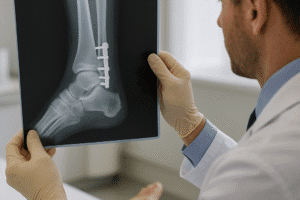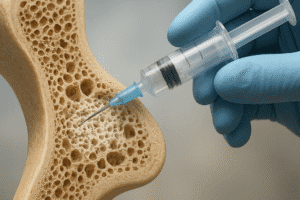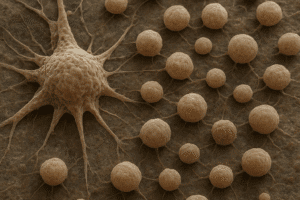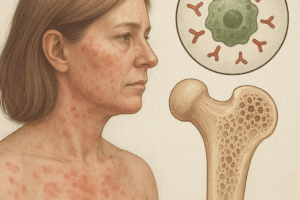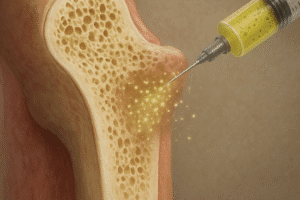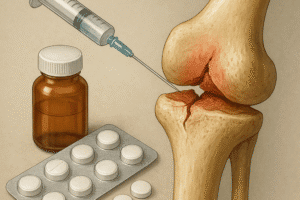The role of collagen in maintaining bone flexibility is a crucial aspect of skeletal health that often goes overlooked. Collagen, a protein that forms the structural framework of various tissues in the body, plays a significant role in the composition and function of bones. Understanding how collagen contributes to bone flexibility can provide insights into preventing and treating conditions such as osteoporosis and fractures. This article will explore the biochemical properties of collagen, its interaction with other components of bone, and the implications for overall bone health.
Understanding Collagen and Its Structure
Collagen is the most abundant protein in the human body, accounting for approximately 30% of total protein content. It is primarily found in connective tissues, including skin, tendons, ligaments, and cartilage, as well as in bones. The structure of collagen is unique, consisting of three polypeptide chains that twist together to form a triple helix. This helical structure provides tensile strength and flexibility, making collagen an essential component of bone tissue.
There are several types of collagen, but type I collagen is the most prevalent in bones, comprising about 90% of the organic matrix. This type of collagen is characterized by its high tensile strength, which is crucial for maintaining the structural integrity of bones. The arrangement of collagen fibers within the bone matrix is also vital; they are organized in a way that allows for both strength and flexibility, enabling bones to withstand various forces without breaking.
The Role of Collagen in Bone Flexibility
Bone flexibility is essential for absorbing impact and preventing fractures. While bones are often perceived as rigid structures, they possess a certain degree of flexibility that is largely attributed to the presence of collagen. The collagen fibers within the bone matrix allow for a slight bending or deformation under stress, which helps to dissipate energy and reduce the risk of injury.
In addition to providing flexibility, collagen also plays a role in the mineralization process of bones. Hydroxyapatite, a mineral composed of calcium and phosphate, is deposited around the collagen fibers, giving bones their hardness and strength. The interaction between collagen and hydroxyapatite is critical; the collagen matrix serves as a scaffold for mineral deposition, and the minerals, in turn, enhance the mechanical properties of the bone. This delicate balance between collagen and mineral content is essential for maintaining optimal bone flexibility and strength.
Factors Affecting Collagen Production and Bone Health
Several factors can influence collagen production and, consequently, bone health. Age is one of the most significant factors; as individuals age, collagen synthesis decreases, leading to a reduction in bone density and flexibility. This decline in collagen production is a contributing factor to age-related conditions such as osteoporosis, where bones become brittle and more susceptible to fractures.
Nutrition also plays a vital role in collagen synthesis. A diet rich in vitamins and minerals, particularly vitamin C, is essential for collagen production. Vitamin C is a cofactor for the enzymes involved in collagen synthesis, and its deficiency can lead to impaired collagen formation. Additionally, adequate protein intake is necessary, as amino acids are the building blocks of collagen. Foods such as bone broth, fish, chicken, and leafy greens can support collagen production and overall bone health.
The Impact of Lifestyle Choices on Collagen and Bone Flexibility
Lifestyle choices can significantly impact collagen levels and bone flexibility. Regular physical activity, particularly weight-bearing exercises, can stimulate collagen production and enhance bone density. Exercise promotes the activity of osteoblasts, the cells responsible for bone formation, and encourages the deposition of collagen in the bone matrix. Conversely, a sedentary lifestyle can lead to decreased collagen synthesis and increased risk of bone-related issues.
Smoking and excessive alcohol consumption are detrimental to collagen production and bone health. Smoking has been shown to reduce blood flow to the bones, impairing nutrient delivery and collagen synthesis. Similarly, excessive alcohol intake can interfere with the body’s ability to absorb calcium and other essential nutrients, leading to weakened bones and reduced collagen levels.
Collagen Supplements and Their Potential Benefits
In recent years, collagen supplements have gained popularity as a means to support bone health and flexibility. These supplements typically contain hydrolyzed collagen, which is broken down into smaller peptides for easier absorption. Some studies suggest that collagen supplementation may improve bone mineral density and stimulate collagen synthesis in the body.
While the research on collagen supplements is still evolving, preliminary findings indicate that they may have a positive impact on bone health, particularly in older adults or individuals with low collagen levels. However, it is essential to approach supplementation with caution and consult with a healthcare professional before starting any new regimen.
Conclusion: The Importance of Collagen in Bone Flexibility
Collagen plays a vital role in maintaining bone flexibility and overall skeletal health. Its unique structure and interaction with minerals contribute to the strength and resilience of bones, allowing them to withstand various stresses. Factors such as age, nutrition, and lifestyle choices can significantly impact collagen production and, consequently, bone health. Understanding the importance of collagen can help individuals make informed decisions about their diet and lifestyle to promote optimal bone flexibility and reduce the risk of fractures and other bone-related conditions.
As research continues to uncover the complexities of collagen and its role in bone health, it is clear that maintaining adequate collagen levels is essential for preserving bone flexibility and preventing age-related decline. By prioritizing nutrition, exercise, and healthy lifestyle choices, individuals can support their collagen production and promote long-term bone health.
